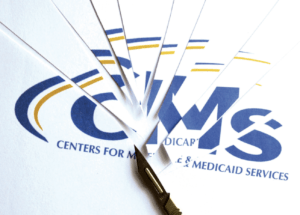 An upcoming national reporting change/addition from the Centers for Medicare and Medicaid Services (CMS) includes three important elements of which Society for Vascular Surgery (SVS) members should be aware.The SVS Performance Measures Committee (PMC) represents SVS member interests regarding national quality reporting required by CMS for participation in the Quality Payment Program (QPP).
An upcoming national reporting change/addition from the Centers for Medicare and Medicaid Services (CMS) includes three important elements of which Society for Vascular Surgery (SVS) members should be aware.The SVS Performance Measures Committee (PMC) represents SVS member interests regarding national quality reporting required by CMS for participation in the Quality Payment Program (QPP).
Physicians can report through the Merit-based Incentive Payment System (MIPS) or Alternative Payment Models (APMs). Beginning in 2023, CMS is adding MIPS Value Pathways (MVPs), designed to “align and connect measures and activities across the quality, cost and improvement activities performance categories of MIPS.”
There are three important, related developments to highlight for SVS members.
The first concerns changes to the quality measure roster in the 2023 CMS Proposed Rule. Currently, there are fewer than 20 quality measures available for vascular surgeons’ use in MIPS reporting. The SVS is responsible for maintaining and updating only four of these measures at present. CMS is planning a net reduction to 194 quality measures, including the elimination of two SVS-sponsored measures:
- #258 (percent of patients undergoing open, non-ruptured, infrarenal AAA repair without major complications and discharge to home no later than postoperative day #7), and
- #260 (percent of asymptomatic patients undergoing carotid endarterectomy discharged to home no later than postoperative day #2)
The rationale cited for removal is “insufficient volume of data submitted for performance year 2020 to establish a historic benchmark.”
In other words, the measure cannot be benchmarked and validated. Two related measures, for endovascular aneurysm repair (EVAR) and carotid stenting, may be similarly removed. As the reporting year cited was almost entirely encompassed by the COVID-19 public health emergency, the lack of reportable data is unsurprising. If finalized, elimination of these measures will reduce the reporting options for vascular surgeons, thus impacting the development and utilization of relevant MVPs.
The second development is that the SVS has rejoined the National Quality Forum (NQF), a decision carefully considered by the SVS Quality Council and Executive Board. Membership will allow the SVS to leverage the NQF’s considerable resources and experience in measure development and maintenance.
This occurs at a time when the vascular community needs to develop new measures to address the changing QPP landscape. In addition, historically CMS is more likely to accept NQF-endorsed measures, given the extensive testing and vetting process required to receive this endorsement.
Finally, members of the PMC can serve as individual NQF members, who are in turn eligible to serve on expert panels and work groups. This is another avenue for SVS and its members to influence national healthcare policy.
The third development is the plan to develop MVP(s) designed specifically for vascular surgeons. While several new MVPs are forthcoming, none specifically address the vascular space. The PMC has discussed options, including the development of separate disease-focused (e.g., aneurysm, venous disease, lower-extremity occlusive disease) pathways versus a global MVP that all vascular surgeons could participate in, regardless of practice focus.
We expect the MVP development process to take at least a year or more, and in either iteration, several new vascular quality measures must be developed. Given the work required to develop and maintain MVPs, the PMC felt that developing a single, more global option would serve vascular surgeons and the SVS most effectively. The quality measure area is dynamic: new measure development must respond to CMS’ evolution in priorities. These priorities include increased use of claims-based measures (designed to reduce reporting burden by relying on existing administrative data), patient-reported outcomes and consideration of health equity, while balancing the need to remain clinically relevant, measure what matters, and, where possible, incorporate existing quality programs such as the Vascular Quality Initiative (VQI) to reduce additional administrative burden and maximize participation, efficiency and validity.
References
- Quality Payment Program: MIPS Value Pathways. Available at: https://qpp.cms.gov/mips/mips-value-pathways. Accessed 9/17/22
- Federal Register: CMS CY 2023 Proposed Rule, Available at: https://www.federalregister.gov/documents/2022/07/29/2022-14562/medicare-and-medicaid-programs-cy-2023-payment-policies-under-the-physician-fee-schedule-and-other. Accessed 9/17/22
- Quality Payment Program: Quality Performance Category: Traditional MIPS Requirements. Available at: https://qpp.cms.gov/mips/quality-requirements. Accessed 9/17/22
Lily E. Johnston, MD, and Jeniann A. Yi, MD, are SVS PMC members. Evan Lipsitz, MD, is the committee chair.












